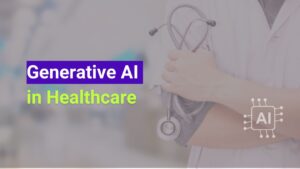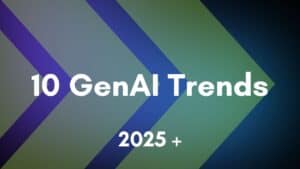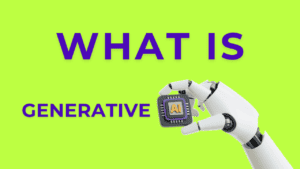Generative AI in Healthcare: Reimagining Patient Care and Operational Efficiency
The Morning That Changed Everything
Jack Thompson stared at the hospital’s overcrowded waiting room, a backlog of patient files scattered across his desk. As the hospital’s operations manager, he’d witnessed countless inefficiencies—until the day generative AI transformed his entire workflow.
It started with a single AI-powered platform that could instantaneously:
- Summarize complex medical records
- Generate accurate patient referral notes
- Streamline prior authorization processes
- Translate medical instructions into multiple languages
Suddenly, what once took hours now happened in minutes.
The Generative AI Healthcare Landscape
Understanding the Technology
Generative AI represents more than a technological trend—it’s a fundamental shift in how healthcare organizations operate. By leveraging advanced machine learning algorithms, these systems can:
- Process Unstructured Data Healthcare generates massive amounts of unstructured information: clinical notes, diagnostic images, patient histories. Traditional systems struggle to interpret this data. Generative AI can seamlessly analyze and synthesize complex information, transforming raw data into actionable insights.
- Automate Complex Administrative Tasks The average hospital spends significant resources on administrative work. Generative AI can:
- Draft discharge summaries
- Create personalized patient communication
- Generate comprehensive insurance claims
- Develop detailed care coordination notes
Real-World Applications
Private Payers
Insurance companies are rapidly adopting generative AI to:
- Personalize member services
- Expedite claims processing
- Generate intelligent chatbots
- Develop targeted marketing strategies
Hospitals and Physician Groups
Healthcare providers are implementing AI to:
- Improve clinical documentation
- Enhance patient education materials
- Optimize workforce scheduling
- Support clinical decision-making
Navigating Challenges and Ethical Considerations
Data Privacy and Security
While generative AI offers immense potential, healthcare organizations must prioritize:
- Robust data protection protocols
- HIPAA compliance
- Bias mitigation in AI models
- Transparent AI governance frameworks
Human-AI Collaboration
Generative AI isn’t about replacing healthcare professionals—it’s about empowering them. The most successful implementations maintain a critical “human-in-the-loop” approach, ensuring AI recommendations are reviewed and validated by experienced professionals.
Implementation Strategies
Steps for Healthcare Organizations
- Comprehensive Technology Assessment
- Evaluate current technological infrastructure
- Identify potential AI integration points
- Develop a strategic AI roadmap
- Data Preparation
- Clean and organize existing datasets
- Ensure high-quality, diverse training data
- Establish secure data management practices
- Strategic Partnerships
- Collaborate with AI technology vendors
- Invest in employee training
- Create cross-functional AI implementation teams
The Future of Healthcare Innovation
Generative AI represents more than a technological upgrade—it’s a paradigm shift. As the technology evolves, we can anticipate:
- More personalized patient experiences
- Reduced administrative burdens
- Enhanced clinical decision support
- Improved healthcare accessibility
Conclusion: Embracing the AI-Powered Healthcare Revolution
The healthcare landscape is transforming. Organizations that proactively integrate generative AI will gain significant competitive advantages, delivering more efficient, precise, and patient-centric care.
Are you ready to reimagine healthcare’s potential?
Generative AI isn’t just the future—it’s happening now.



